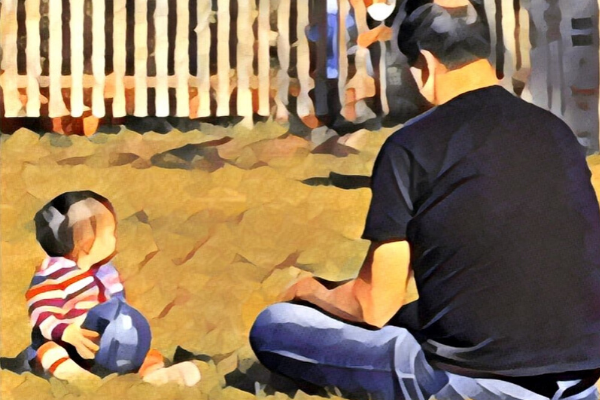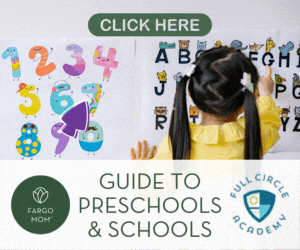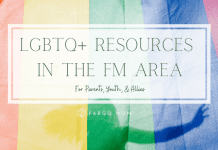Before I even started having family, I had this idea of how I wanted my children to be: well mannered, responsible, good citizens; independent, law-abiding, true to themselves, and the kind of child that wouldn’t care what a bully would say. I wanted them to be fully bilingual, know their history and geography, have empathy, and do well in school.
In other words, I wanted perfect, ideal children. They’d never throw tantrums or misbehave. They’d always take care to keep clean and would let me play with their hair. (I’m sure you can guess how that one ends.)
Parenting in My Home Culture
When I was pregnant with my first child, high up in the mountains in my home country, everyone seemed to have an opinion on how I would raise her. People also insisted I eat constantly and would try to feed me, due to the belief that if you don’t share your food with a pregnant woman, it will both harm the baby and cause a sty on the eye of the sharer. I’d come home with cookies and fruit from strangers. I was offered constant advice and felt people were watching me at all times.
After my daughter’s birth, all the attention shifted to my husband’s parenting. Everyone understood that I could care for my newborn, but he couldn’t leave the house with her without having women come up to him to correct his parenting. They would always tell him that he was either holding the baby wrong or ask him where the mother was. Some would just glare at him and make comments under their breath, for they couldn’t fathom that a man would be taking care of their newborn on their own. When I travel home now, I am still asked who’s taking care of my girls; and when I tell them their dad is at home with them, most people ask if his mother is coming to help him.
We realized early on in our parenting adventure that we had our work cut out for us. Our ideas on how to care for our daughter was sometimes different from those around us. Even so, we were happy in our small community in the Caribbean. We had a tribe of friends from all over the world that were raising their children alongside us.
Change of Scenery (and Parenting-Style)
Suddenly, life changed and we had to hastily pack up and move to Fargo in search of better healthcare for my husband. The move from the warm, mild climate of the Dominican Republic to the cold and windy prairie of North Dakota began to change how we approached parenting as well. We arrived in the middle of December, and I had never been anywhere colder than 65 degrees. For the first few years, I was very protective and would drive my husband crazy about the layers of clothes we wore.
As my child grew, I noticed a big difference in how people treated us here. Advice was offered respectfully. Most people asked me before doing things with my child and respected my guidelines. However, I missed that feeling of a tribe back in my home country. If my child misbehaved in public, no one would correct her or tell me about it. I’d get plenty of disapproving looks, but no offers to help. I felt like we were alone in parenting and that asking for help was seen as a burden, so I never did.
One especially trying day, I needed to nurse my baby while at a store and was asked to go into the women’s bathroom to do so. I politely told the staff they could come with me and bring a sandwich if they felt that was a suitable place to eat. I was eventually allowed to nurse in the dressing room, but I received the disapproving look people have so perfected for mothers when they disapprove of their parenting. I overheard the worker tell another person that I should have brought a bottle. It took me three years to go back to that store.
When I got pregnant with my second child, I started to realize how different people were here than my friends in the Dominican Republic. I got used to it, and eventually learned to like it. The only people reacting the same way as me were women at the International Market and a family from Iraq that owned a mini-market near my house. I guess that when you’re new in a country or different from the majority, there’s a need to connect with others that understand how you feel and what you’re going through.
A More Hands-On Approach
At the beginning of my life in Fargo, I would often take my almost two-year-old and walk to Island Park. Visiting that park with her highlighted how different my idea of caring for a child was. When you visit a park in my home country, you never see adults directing what activities the children do. They are usually open spaces, and the children group together and play while the adults visit with each other nearby. You would never see any adults in the play equipment. Ever. Like other parenting guidelines, I assumed it was just the way things were done here and I started adapting to it.
In addition to the playground, I began to notice parents play games with their children more than I was accustomed to. I’d spend time with my parents, sure, but playtime was for children to control and enjoy, preferably not within earshot of adults. Most games I played as a child were designed to make the children go away from the parent. For example, we’d play a game called “Flor y Convento.” In this game, the parent asks the child to retrieve different things (e.g. flower, stick, rock, etc.) and whichever child finds the most objects will win. I didn’t realize the whole purpose of the game was to give the parent some space until I played it with my own kids. The parents in no way help to find these objects, even after the child gets frustrated. That’s usually part of the game.
Here, parents enjoy interacting with their children more. They run around and go on the swings with them. It’s by no means a chore; you can see it on their faces, they are truly having fun. Kids are always within reach of their parents. They are not allowed to explore on their own too far, and depending on the parent, sometimes are told what to play and how. Sometimes it seems to me as if their whole play experience is monitored and controlled by the adults. Some children have so many activities programmed in a day, I don’t know how they make it through the week. It’s exhausting for me, just looking from the outside in.
Best of Both Worlds
I decided early on in my parenting journey that I would take the best of both parenting styles and make my own version of it. I’ll always be more of a “free-range” parent, and my children know they need to figure out what to do on their own, as my imagination for fun and games is limited. I may never be the parent running up the slide with my girls, but I’ll enjoy a game of tag here and there. We want them to approach risks with caution, but we also want them to learn how to deal with such risks.
When we moved to North Fargo, I met some other wonderful moms whose parenting style was much the same as mine: they want a balance between protecting our kids from danger and teaching them to assess risks and learn from their mistakes; a balance between allowing them the opportunity of trying new things and allowing them to choose what they like. We all want our children to have what they need and for them to be happy; we all have that in common.
I learn more and more every day from the people here and the people I came from. In a way, my style is not a definite way, but more like a combination of choices and adaptations made along the way. I’ve become a true Fargoan, and it shows. And my children seem to be happier for it.















